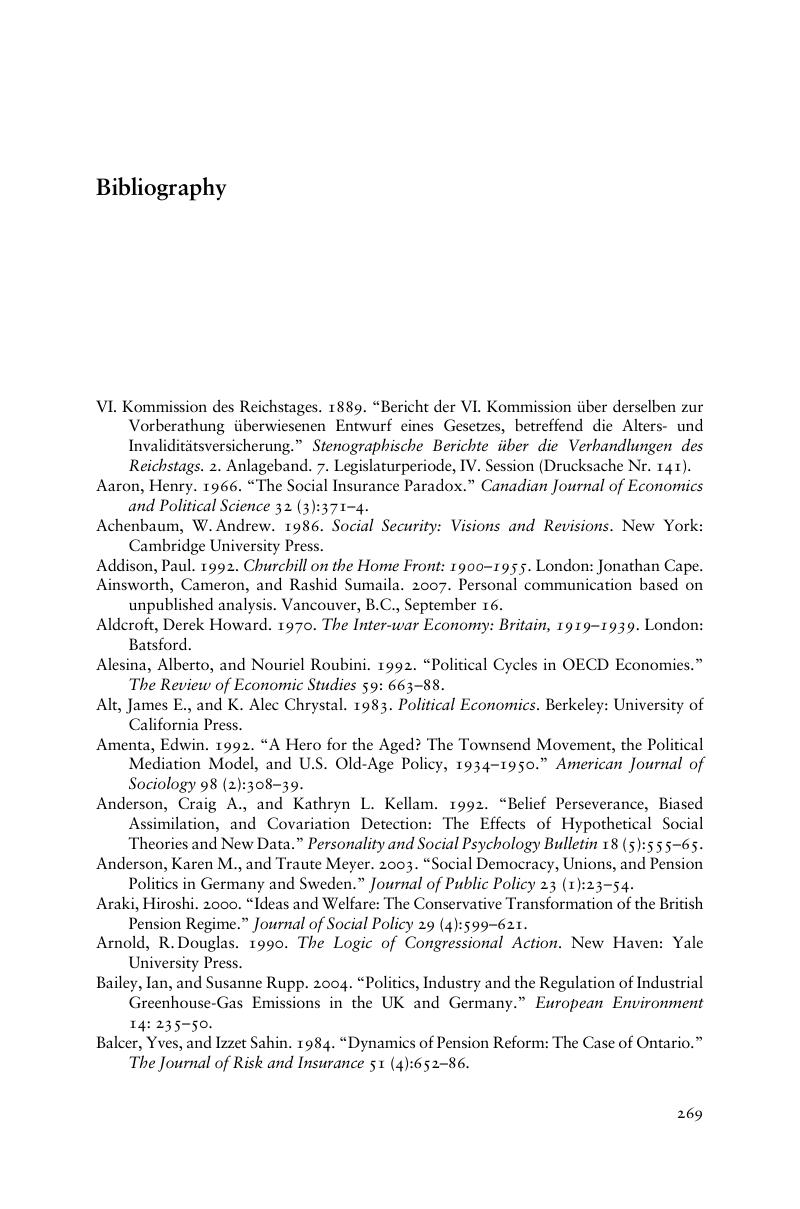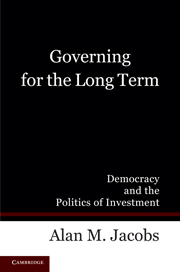Bibliography
Published online by Cambridge University Press: 05 June 2012
Summary

- Type
- Chapter
- Information
- Governing for the Long TermDemocracy and the Politics of Investment, pp. 269 - 294Publisher: Cambridge University PressPrint publication year: 2011



